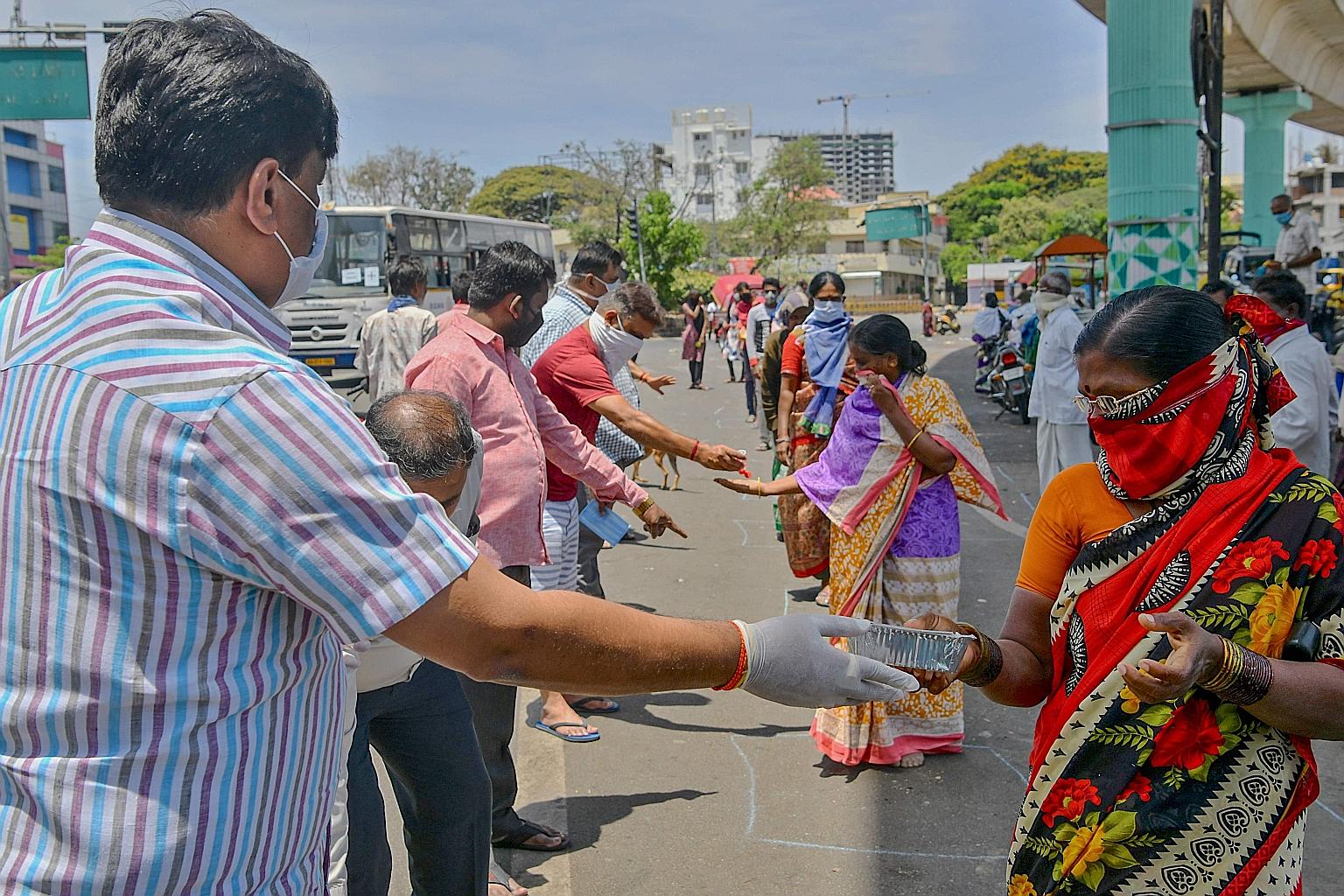Correspondents' accounts
India's policemen loom large in nationwide lockdown to prevent spread of coronavirus
Sign up now: Get insights on Asia's fast-moving developments
Follow topic:
Few things can teach you obedience like going out to buy vegetables during a "coronavirus lockdown", as we Indians are calling it now. Hoarding, long lines, and empty shelves seem like First World problems to us.
Most Indians today are afraid of policemen stopping, chasing, beating, yelling at, or punishing us for venturing out. We didn't know this until India went into national lockdown last Wednesday.
In Bangalore, I avoided the initial panic-stricken rush to the supermarkets and walked out at 7am on the third day, wearing the mask I had purchased for triple its usual price a week ago.
A dozen people, most with masks or at least scarves and handkerchiefs across their faces, purchased milk, vegetables and fruit from vendors on the footpath.
It had just hit me that the prices had quadrupled when a middle-aged man sliced the peak of a mountain of green chillies with his baton. "Go home!" he barked in Kannada. He was in pyjamas and a shirt, wearing his casual, unpredictable authority as only a policeman can.
More plain-clothes policemen lumbered around, berating us like we were dealing in contraband goods. Suddenly, they shot like arrows into the market lane, swinging their batons wildly.
Everyone scrambled. I speed-walked home in silence, wilting cauliflower in hand, feeling like a criminal.
An aggressive virus has vanquished the most intrepid and restless of us.
Rural India may be struggling the most under the lockdown, but apart from some videos shared on social media by smartphone-wielding villagers, much of the hinterland and its issues are invisible to us in the cities. In a country with great class and urban-rural cleavages, we are separated further by the crippling lockdown, and a disease whose rapid advance we can curb only by social distancing.

Free food being distributed to roadside hawkers and the poor in Bangalore in the south Indian state of Karnataka last Friday amid a nationwide lockdown to curb the spread of the coronavirus.
PHOTO: AGENCE FRANCE-PRESSE
It is harrowing to get India to stay indoors, but the police seem to have interpreted the lockdown in its severest form.
Videos from across the country show the physical harm that policemen appear to be willing to inflict to enforce the lockdown. They frogmarched poor migrants desperately walking home, upturned fruit carts and kicked down bike riders going out to buy rice. The leader of the southern state of Telangana even said he had given "shoot at sight" orders.
"Only fear will keep people indoors, not understanding social distancing," said a senior policeman in Chennai, which now has police checkpoints throughout the city.
They allow through only doctors, pharmacists and those working in "essential services" - a phrase with a fixed definition but whose practical application seems to vary by region, official and his mood.
A 75-year-old musician walking just outside his house at 5.30am in the Tamil film hub of Kodambakkam told me he was shocked when a patrolling policeman bellowed at him: "Go inside, sir!"
When the musician tried to explain, the officer advanced with a hop, as if to shoo a pigeon from a windowsill. The senior has paced only his terrace since.
Professionals have been able to work from home. Work meetings are organised on Zoom and, now, so are catch-ups with family and friends.
If the enforced lockdown teaches us Indians anything, I hope it's to call family and friends more often, back public systems to help those in need and, who knows, maybe even to stand in a neat queue.

